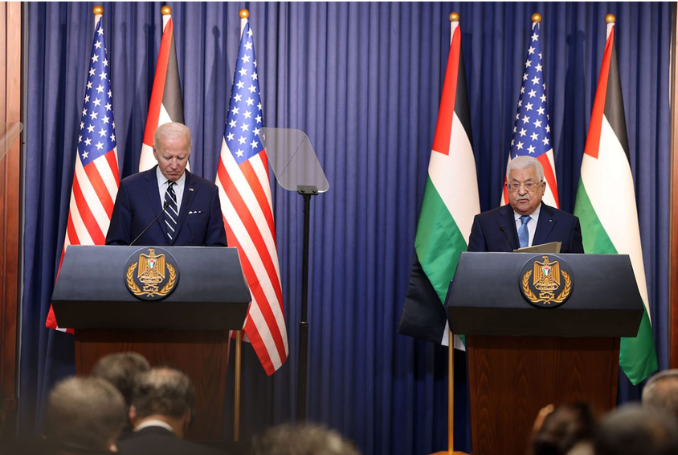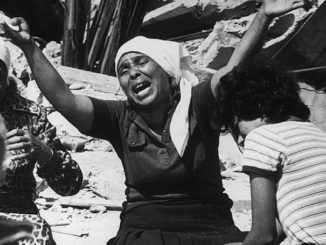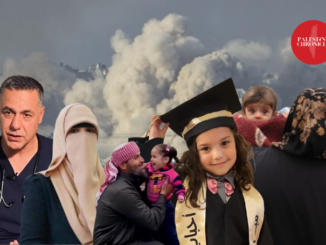
US President Joe Biden promised on Friday not to give up efforts to end the decades-long Israeli-Palestinian conflict, though he offered no new proposals to restart the stalled political dialogue between the two sides, Reuters reported.
As he wrapped up the first leg of a Middle Eastern trip before departing for Saudi Arabia, Biden visited a hospital in East Jerusalem and pledged a multi-year $100 million package of financial and technical help.
“An Israeli advocacy group, B’Tselem, mounted billboards near the 26-foot-high separation wall in Bethlehem reading “Mr. President, This is Apartheid,” a characterization Biden has rejected.” https://t.co/FPUcEmMYdF
— B'Tselem בצלם بتسيلم (@btselem) July 15, 2022
But after a meeting with Palestinian Authority President Mahmoud Abbas in the West Bank town of Bethlehem, he acknowledged that the creation of an independent Palestinian State remained a distant prospect with no immediate prospect of new talks with Israel.
“Even if the ground is not ripe at this moment to restart negotiations, the United States and my administration will not give up on trying to bring … both sides closer together,” Biden said.
Abbas said prospects for a two-state solution to the conflict, the model favored by the United States and world bodies, including the United Nations, were receding and the opportunity “may not remain for a long time”.
Abbas reiterated demands that the United States open a Consulate in East Jerusalem, which Palestinians want as the capital of a future independent state, remove the Palestine Liberation Organization from a list of terrorist groups and allow it to re-open an office in Washington.
Live Updates: Biden stresses two-state solution after meeting Abbas in Bethlehem https://t.co/uAIBozjTRj
— Al-Monitor (@AlMonitor) July 15, 2022
He also asked for US support to bring to justice the killers of Palestinian journalist Shireen Abu Akleh, who was killed during an Israeli raid on the West Bank city of Jenin.
Before his visit, Palestinian leaders had accused Biden of prioritizing Israel’s integration into a regional security arrangement with Arab countries above their concerns, including self-determination and continued Israeli settlement building in the West Bank, occupied after a war in 1967.
(MEMO, PC, Social Media)







